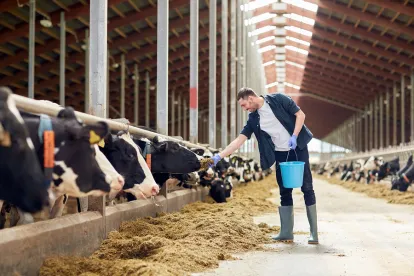On Friday, August 23, 2019, the President signed into law the Family Farmer Relief Act of 2019.
The Act increases the debt limit used to determine whether a family farmer is eligible for relief under Chapter 12 of the Bankruptcy Code. Under the old law, the debt limit was around $4.3 million. Now, it will be $10 million. This larger limit will encourage family farmers to use Chapter 12 – rather than the more onerous Chapter 11 – to reorganize their affairs.
About Chapter 12
Chapter 12 is meant for family farmers with regular income. It addressed the specific economic challenges they face – fluctuating land values and commodity prices, extreme weather, and the impact of trade policies and tariffs. It is a way for debtors to propose and confirm a plan to repay all or part of their debts over three to five years. It is faster, less expensive, less complicated, and more streamlined than Chapter 11 – the primary tool for corporate reorganization. It is also a better tool for debtors than a "wage earner" Chapter 13, given the larger debts they often must repay.
Who is a Family Farmer?
A family farmer can be an individual, an individual and spouse, or a corporation or partnership. Individuals must be engaged in farming, and over half of their total debts and annual gross income must be farming related. For corporations or partnerships, over half the outstanding stock or equity in the corporation or partnership must be owned by one family or by one family and its relatives, the family or the family and its relatives must conduct the farming operation, and over 80% of the value of the corporate or partnership assets must be related to the farming operation. Under the new law, the family farmer's debts may not exceed $10 million.
The family farmer must have regular annual income to ensure payments to creditors under his plan. Income may be seasonal, so long as it is stable.
How Does Chapter 12 Work?
A Chapter 12 case starts when the family farmer files a Petition, Schedules, and a Statement of Financial Affairs. Since only a family farmer can file a Chapter 12, there are no involuntary Chapter 12 cases like an involuntary Chapter 7 case. Just like other bankruptcy cases, the filing imposes an "automatic stay" on collection activity by creditors. But a Chapter 12 case also imposes a "co-debtor" stay for consumer debts from anyone liable with the debtor.
When the debtor files the Petition, the Court appoints a Chapter 12 Trustee to administer the case. If the court confirms the plan, the Trustee will collect payments and distribute them to creditors. The Trustee will convene a meeting of creditors within a month of the filing. The debtor must attend and answer creditor questions about his financial affairs and proposed repayment plan. Unsecured creditors must file their proofs of claim within 90 days of this meeting.
The Chapter 12 Plan
Absent court extension, the debtor must file a repayment plan with the petition or within 90 days after filing. The plan will provide for fixed, regular payments to the Trustee for the repayment of claims over three to five years. There are three claims in Chapter 12: priority, secured, and unsecured. Priority claims are those granted special status by the Bankruptcy Code, such as most taxes and the costs of the bankruptcy proceeding. Absent limited exceptions, the plan must provide for full payment of all priority claims.
Secured claims are those for which the creditor may liquidate certain property if the debtor does not pay the underlying debt. Secured creditors must be paid at least as much as the value of their collateral. Payments to secured creditors can sometimes continue longer than three to five years. If the debtor's underlying obligation was scheduled to be paid over more than five years, the debtor might be able to pay the loan over the original loan repayment schedule if he catches up all arrearages during the plan.
Unsecured claims are not supported by collateral. The plan need not pay unsecured claims in full, as long as it commits all of the debtor's projected "disposable income" (or property of equivalent value) to plan payments over three to five years, and as long as the unsecured creditors receive at least as much as they would receive if the debtor's nonexempt assets were liquidated under chapter 7.
Confirmation and Discharge
Within 45 days of filing the plan, the court will conduct a confirmation hearing to determine if the plan is feasible and meets the conditions for confirmation. Creditors may appear and object to confirmation. Most objections involve feasibility (e.g., Can the debtor make the plan payments?), whether the debtor has pledged all disposable income, or the liquidation test. If the court confirms the plan, the Trustee starts paying creditors. If the court denies confirmation, the debtor can modify the plan, convert the case to Chapter 7, or seek dismissal. The debtor receives no discharge until he completes all payments under a confirmed plan.
Conclusion
If you finance farming operations, be aware of this important change in the law because it will probably lead to more Chapter 12 filings. Chapter 12 cases move much faster than Chapter 11 reorganizations, and they have specific nuances and requirements you need to know. If you have a customer who files Chapter 12, you should immediately contact legal counsel to discuss your rights and obligations.




 />i
/>i

